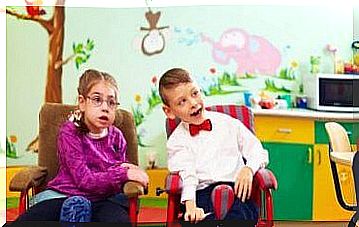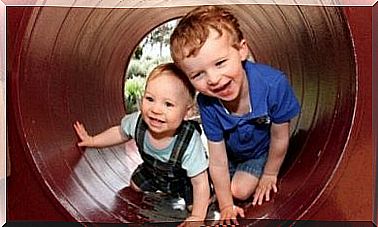How To Put Limits On Hypersensitive Children – Parenthood

Educating and setting limits for children has never been easy. Also, for parents of hypersensitive children, this can be particularly difficult. It is important that parents know some tips for successfully educating their children, even if they are very sensitive and emotional.
Being a parent is one of the most rewarding things in the world. So all those who have the privilege of being parents are really lucky people. However, it is not always easy. In general, the most rewarding jobs come with hard work.
It is through this hard work that we grow as parents and individuals. So every now and then we are rewarded with those moments that stop us in our tracks, that take hold of our hearts and assure us that what we are doing is right.
This job can be even more difficult for parents of a hypersensitive or very emotional child.
Who are these hypersensitive children?
A hypersensitive child is aware of his sensitivity and reacts quickly. He feels things on a deeper level. These children are incredibly empathetic and perceptive of their surroundings and the way they move in space.

When a hypersensitive child is feeling frustrated, you should try to reassure them that it’s okay to be nervous. Also, you can tell him that he can try again what he was doing when he feels a little better.
It would probably work very well in a child with low sensitivity. However, for a child who feels things deeply, these words do not always influence their emotions.
Now that we understand some of the behaviors and components of hypersensitive children, what are some appropriate ways for parents to educate and set limits? We will discuss this in more detail below.
Set limits with hypersensitive children
First of all, it should be noted that being hypersensitive is not a disability or a syndrome, but a personality trait. Being hypersensitive is, in fact, a wonderful personality trait. This is true when the child and his parents understand how to better organize themselves and deal with deep emotions and feelings.
Avoid being on the defensive
As parents, we need to be aware of our own feelings. Our children are separated from us because they are individual beings with their own thoughts, feelings and reactions. For this, they will sometimes (or often) get angry about the choices we make. This is very good for their personal development.
As parents, therefore, we must be aware of this individuality and validate their own feelings. In doing so, it is important not to be on the defensive. In addition, we must avoid letting ourselves be overwhelmed by our own emotions at this time.
Showing empathy
What to do when your child is upset and has a tantrum? It is important to show empathy and understanding by putting the situation into words. This behavior is better than walking away without saying anything so that he can calm down.
When we leave, we can send the message to our children that they are not accepted for the way they are. We need to warmly acknowledge what they are feeling and give them a chance to express their feelings in words.

For example, with a three-year-old you might say, “Mom sees you’re disappointed. You wanted more play time and now it’s bath time. You got mad at mom. It’s hard to stop when you wanted to play longer. ” By being there for our children emotionally and physically, we ensure a strong bond with our children so that they can trust us, even in their most difficult times.
Set limits
Once communication and emotional support are established, it’s important to set boundaries and move on. Following the given rules shows your child consistent behavior that they can trust. We need to be able to sincerely support our children knowing that they can do it.
When we threaten a consequence, we cannot do it in a vacuum. We have to explain to them the things that they need so that they can understand what they have done. In addition, it allows them to understand the associated consequences and to learn from them.
Finally, we can also be open and communicative with our children. We can tell them that it’s not always easy to have to say no. It’s difficult because it bothers someone we love. But we say no because our job is to keep our children safe and to help them learn and grow.









